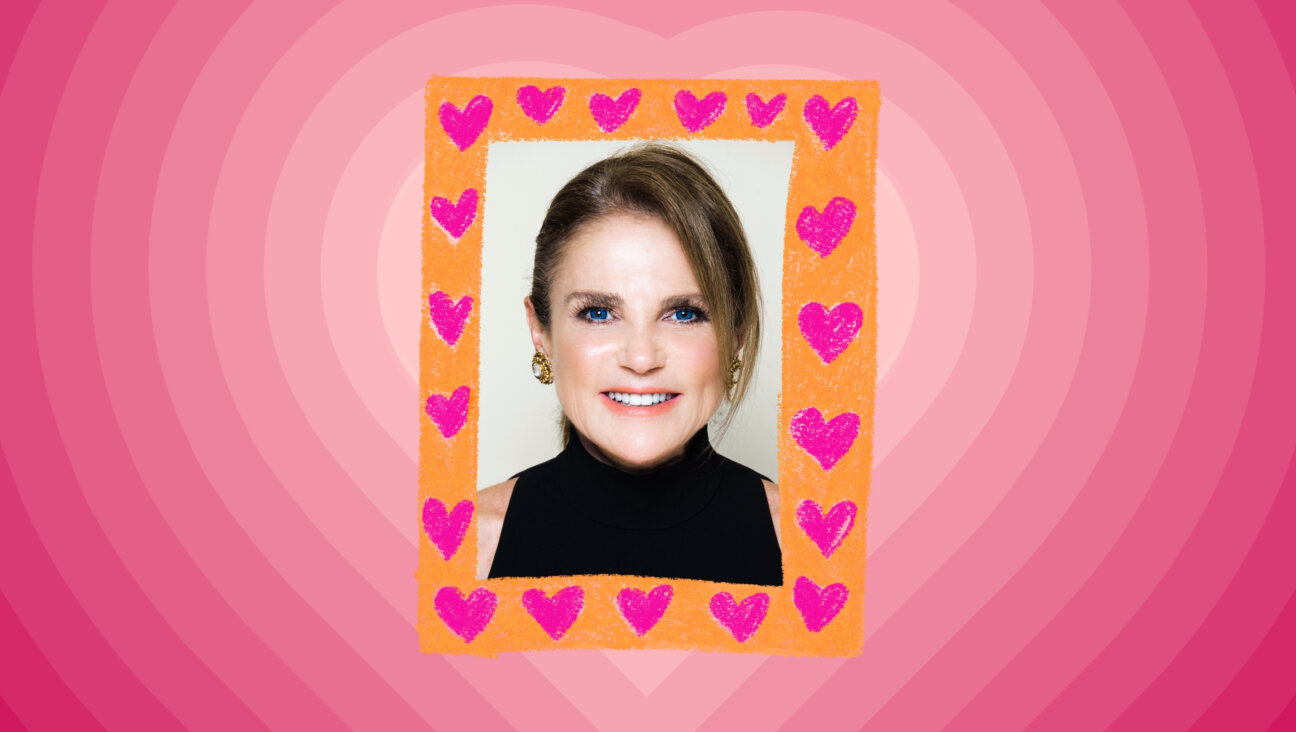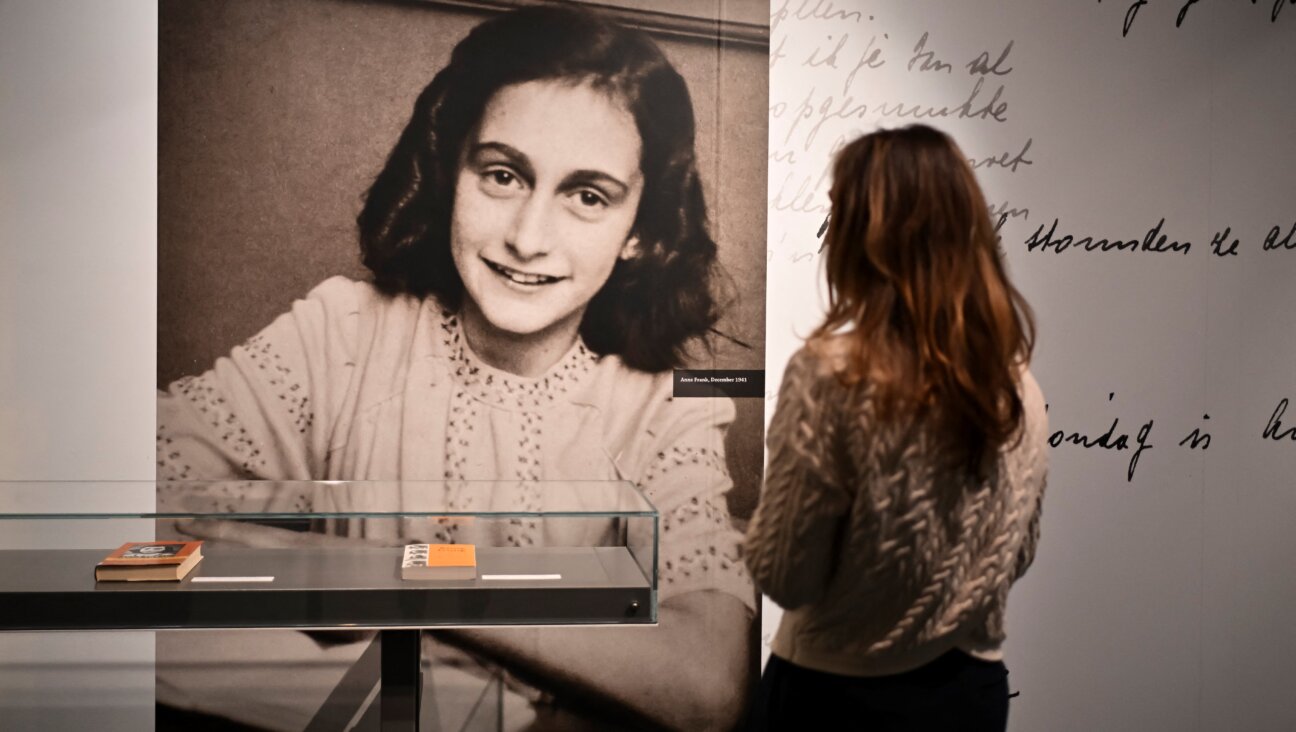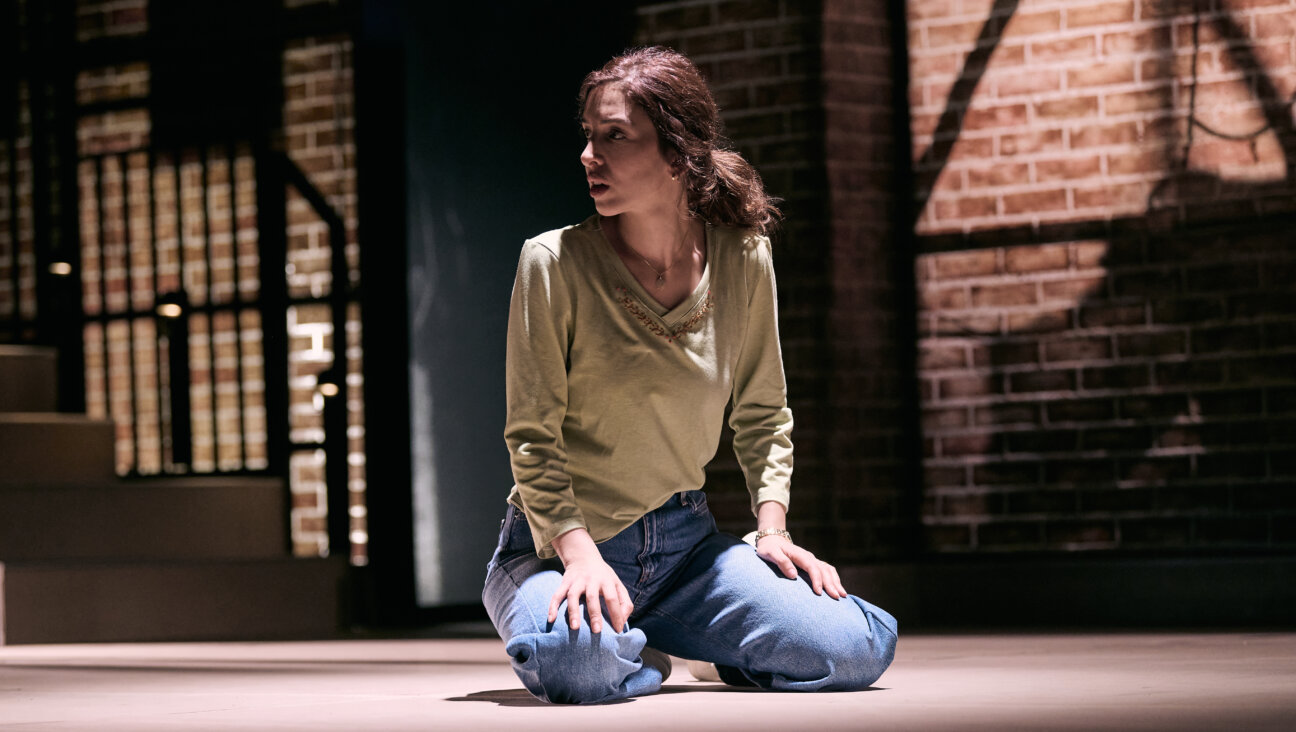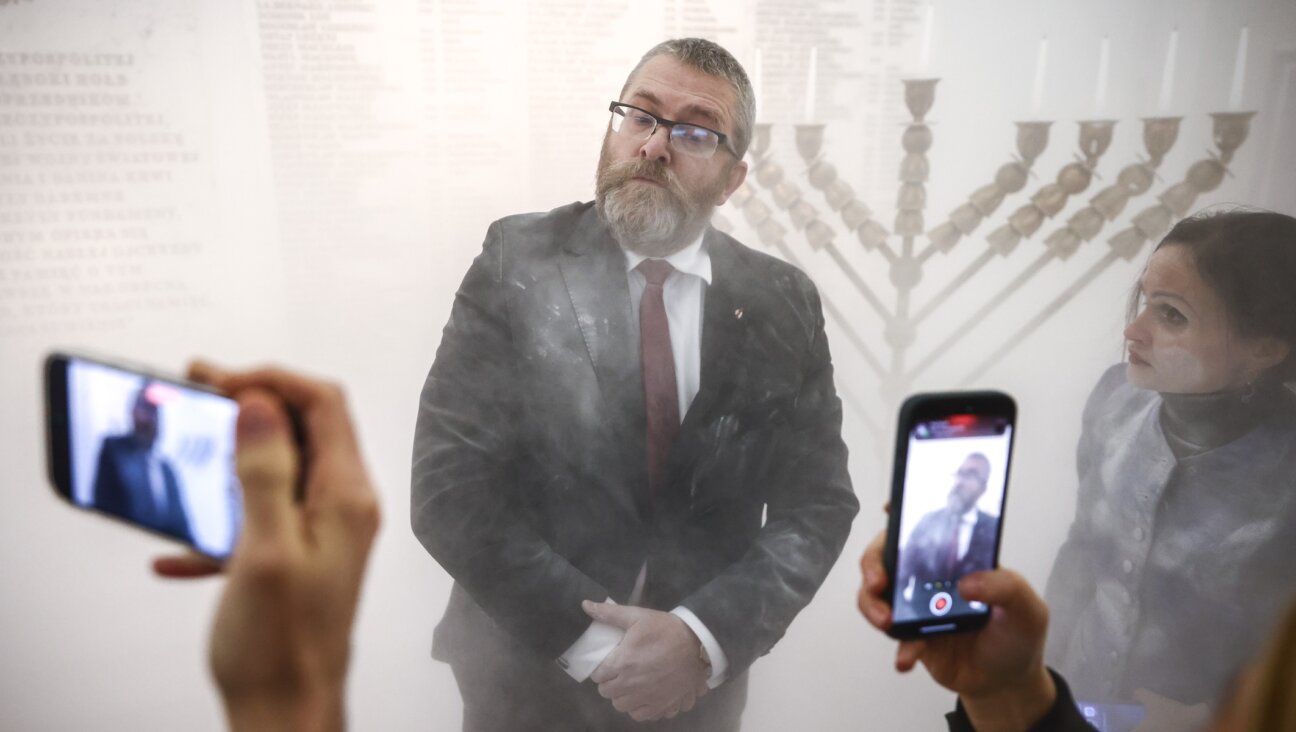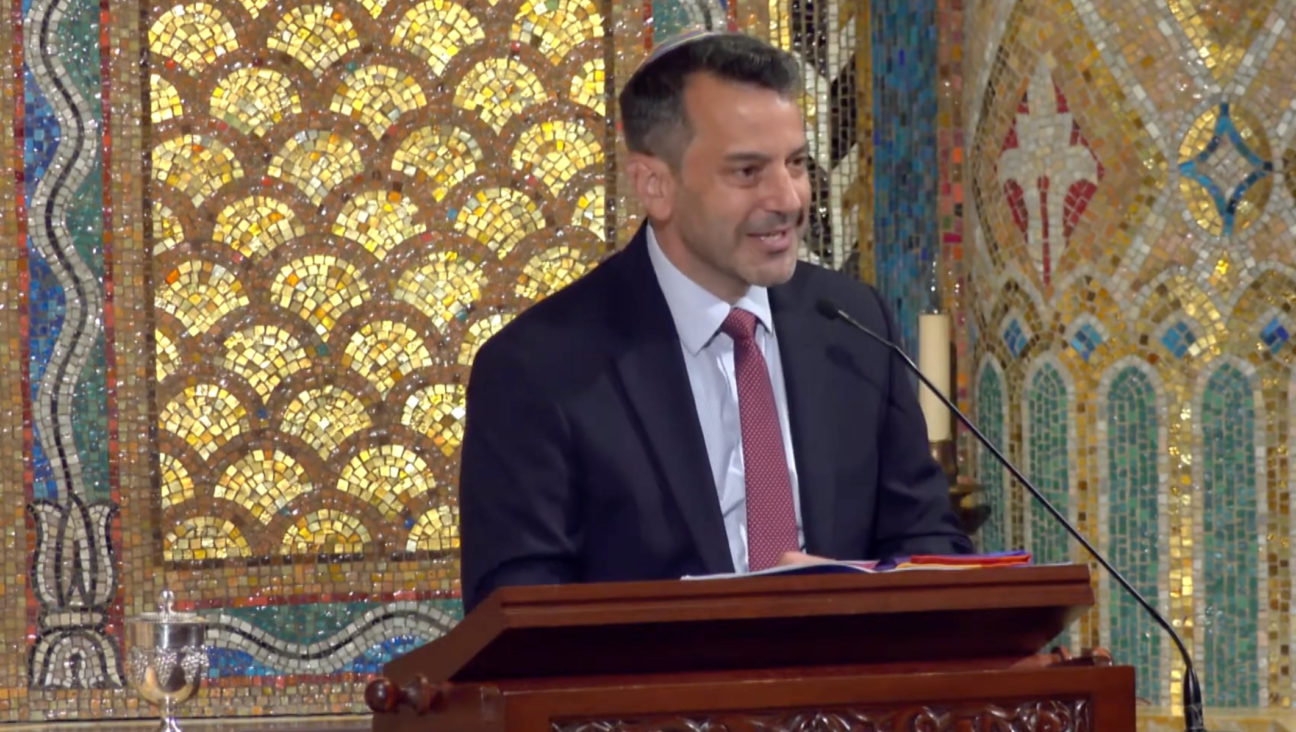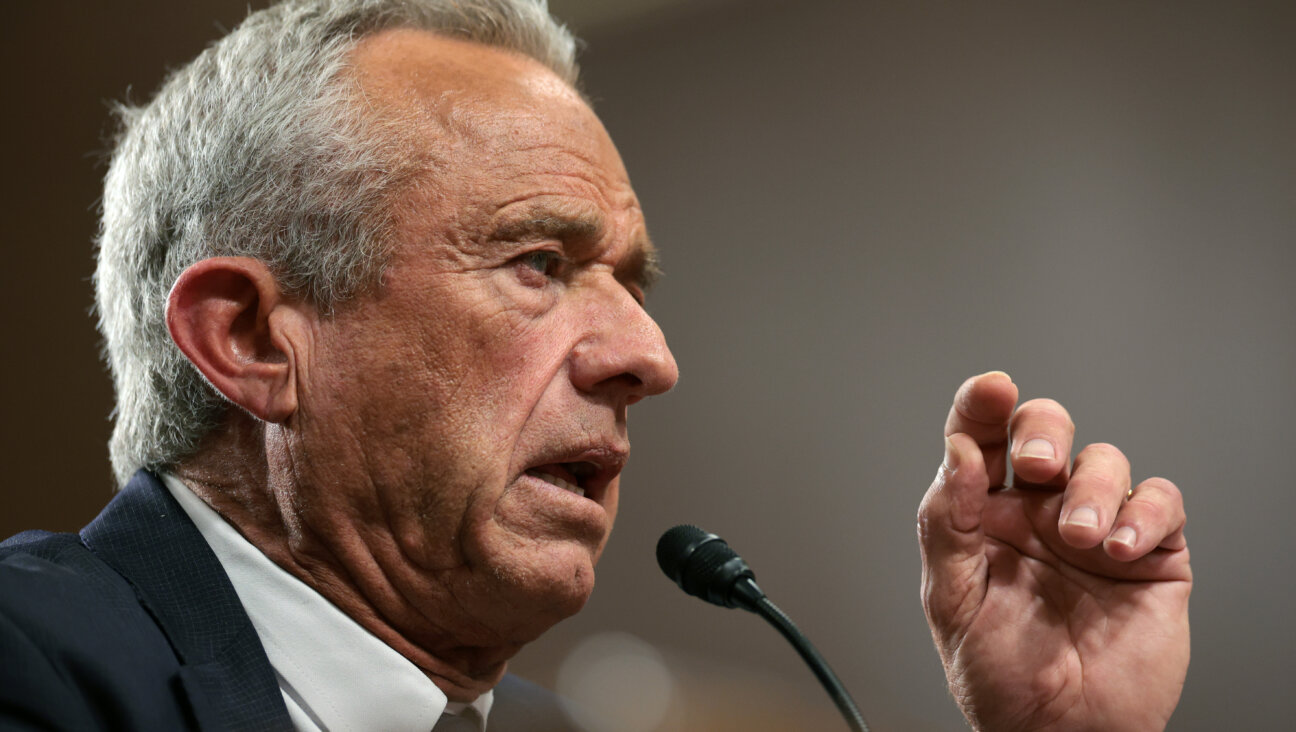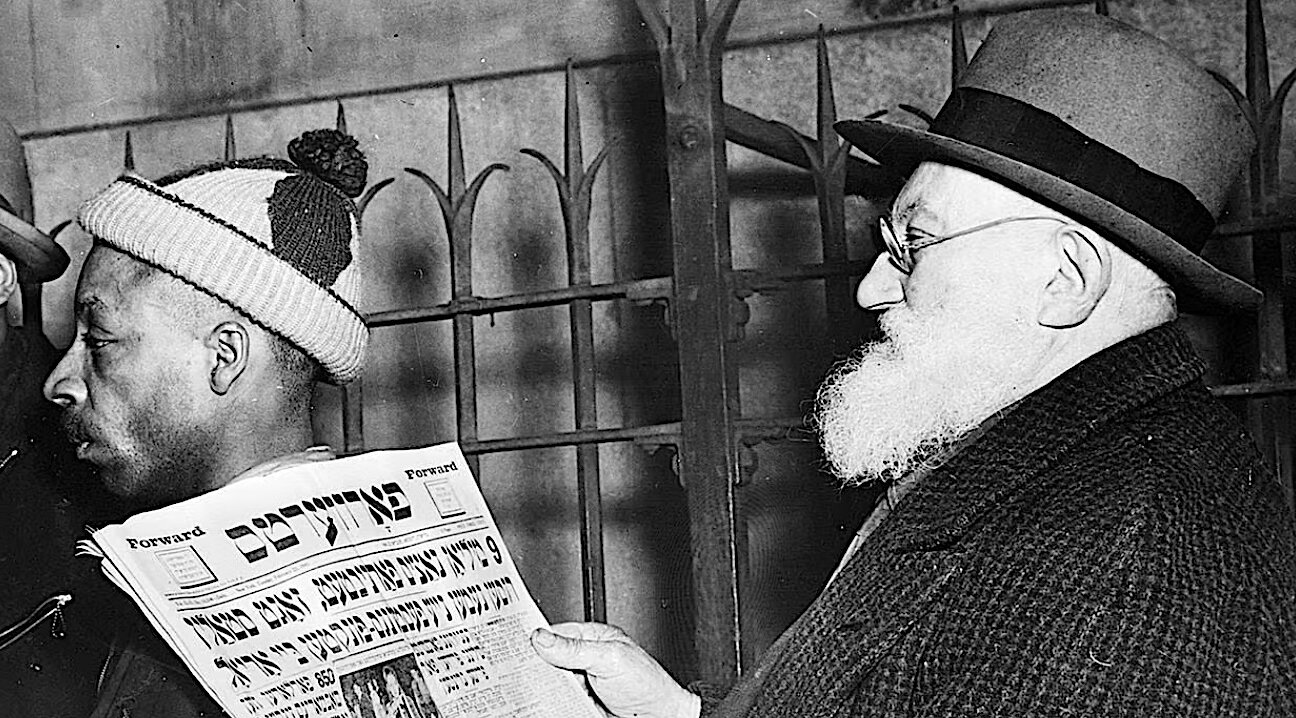Adam Sandler Speaks! Some New Jewish Facts About The Comedy Legend
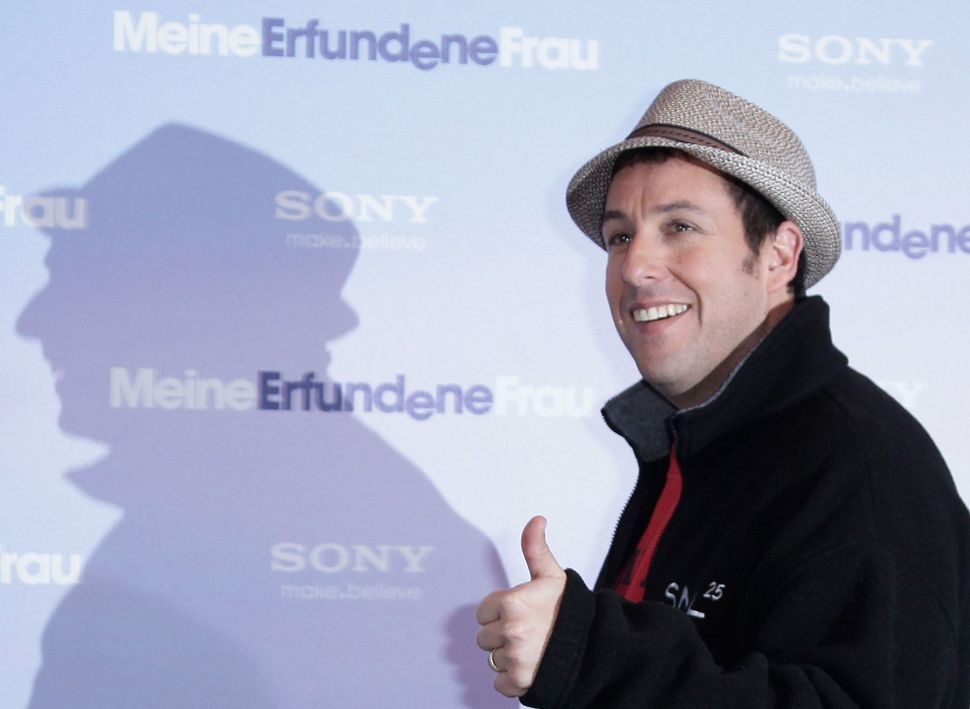
Adam Sandler Image by Getty/Andreas Rentz/Staff
In his first magazine profile since 1996, Adam Sandler, primed to debut an intense and morally itchy performance as diamond dealer Howard Ratner in the Safdie Brothers’s “Uncut Gems,” appears menschy and family-oriented.
The November 27 write-up by The New York Times’s Jamie Lauren Keiles is also, unsurprisingly, an insanely Jewish affair. It begins at the Hillcrest Country Club in Los Angeles over matzo-ball soup and ends at Katz’s Deli before a spread of pastrami and mini knishes. Here are some of the piece’s biggest Yiddishkeit insights into the Sandman.
1. Sandler’s early influences were the Marx Brothers and Rodney Dangerfield
“These guys were my favorite,” Sandler tells Keiles, pointing to a portrait of the Marx Brothers at the Hillcrest (the first Jewish country club in L.A.) “My father would wake me up, and I’d get to watch, you know, ‘Duck Soup’ or ‘A Night at the Opera.’”
When Sandler first began performing stand-up in his late teens, all he had as points of comedic reference were Rodney Dangerfield albums and the early years of S.N.L. The only time he had seen live comedy was during a family vacation in the Catskills — a true Jew origin story.
2. The actor is committed to his Jewish heritage — due in no small part to his father
“It’s more about tradition,” Sandler told Keiles of his Judaism. “Remembering history, making sure that you have pride.”
Sandler’s father, Stan, who died in 2003, was also his son’s biggest fan, taping all his TV appearances. Sandler thinks his dad is still watching over him. When told that his turn in “Uncut Gems” is getting Oscar buzz, Sandler replied “My dad must be happy hearing stuff like that.”
The go-to adjective to describe Sandler is “Loyal”
It’s something of a punchline that many Sandler films seem to be designed to boost the flagging careers of his less-famous friends. While Sandler insisted this wasn’t the case — he said he just liked working with people he loves — Keiles provided a wall of glowing quotes about Sandlers’s commitment to collaborators and friends. The kind words come from Jennifer Aniston, Paul Thomas Anderson, Drew Barrymore and more. Almost all of the quotes use the word “loyal” or “loyalty.”
“Such a menschy, sweet person,” said Judd Apatow.
3. He thinks about his family before he agrees to take roles
Sandler originally resisted playing the part of Ratner in “Uncut Gems,” concerned about how his kids might feel watching him in it. (The character has a relationship with a much younger woman — like, 20 years younger.) While his dramatic work, notably in Paul Thomas Anderson’s “Punch-Drunk Love,” has courted considerably more critical praise than the bulk of his Happy Madison comedies, Sandler largely avoids edgier material out of deference to his wife and kids.
4. The Safdies wanted Sandler for their film (and had some big names lined up as contingencies)
Josh and Benny Safdie based the character of Ratner on their own father, a Sephardic emigrant who worked in New York’s diamond district. The film-making brothers told Keiles their dad introduced them to Sandler at an early age with his album “They’re All Gonna Laugh At You!” The duo knew when they began working on “Uncut Gems” that Sandler would add a much-needed sense of pathos to their central character.
“We wanted you to root for him to win,” Benny Safdie told Keiles. “Sandler, we knew, could bring that out of him.”
Because the brothers were unsure they could get Sandler attached, they had, at different points of a decade-long pre-production process, pegged Sacha Baron Cohen and Jonah Hill to star as Ratner.
5. Sandler still thinks everything’s fair game in comedy
No one will ever accuse Sandler’s work of being P.C., but in the profile, Sandler appeared introspective about missteps he may have made in offending other groups — notably, in his Western film “The Ridiculous Six,” which prompted an on-set walkout by Native American cast members over an insensitive script.
“I try not to hurt anybody along the way, but ultimately I’m sure I’ve made a lot of mistakes over the years,” Sandler told Kiele. But he added that his jokes are ultimately harmless (with him often being the butt of them). “Everything has the potential to be funny.”
PJ Grisar is the Forward’s culture fellow. He can be reached at [email protected].
A message from our Publisher & CEO Rachel Fishman Feddersen

I hope you appreciated this article. Before you go, I’d like to ask you to please support the Forward’s award-winning, nonprofit journalism so that we can be prepared for whatever news 2025 brings.
At a time when other newsrooms are closing or cutting back, the Forward has removed its paywall and invested additional resources to report on the ground from Israel and around the U.S. on the impact of the war, rising antisemitism and polarized discourse.
Readers like you make it all possible. Support our work by becoming a Forward Member and connect with our journalism and your community.
— Rachel Fishman Feddersen, Publisher and CEO








